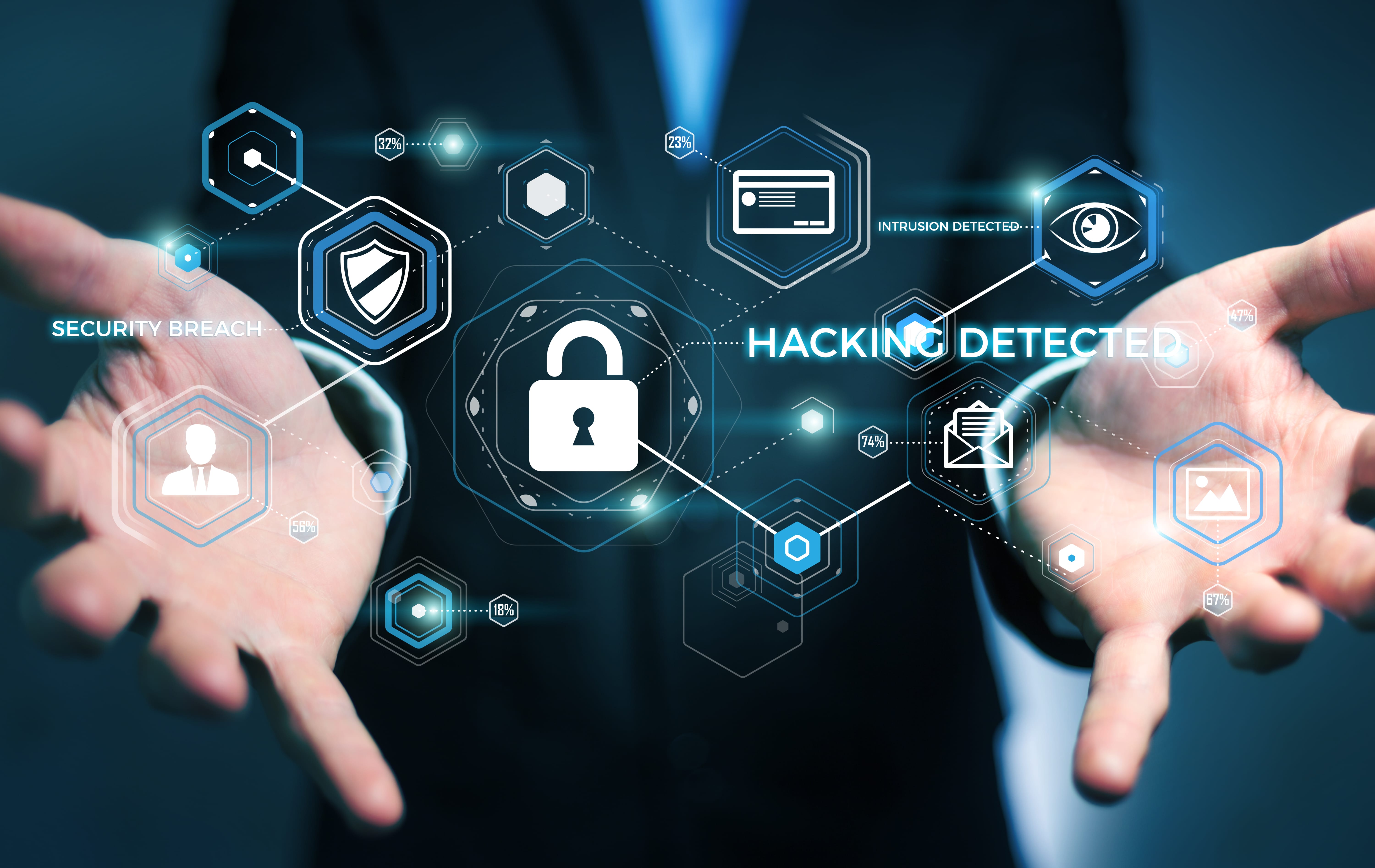Why Is Cyber Security Important In The Financial Industry?
As technology continues improving, more financial transactions will continue happening online. These transactions will be easier and more convenient for customers and financial institutions. However, online transactions come with their own special risk.
Cyberspace is filled with predators seeking innocent victims of their hard-earned funds. According to Cybersecurity Ventures, cybercrime will cost the world about $7 trillion by the end of 2022, and it doesn’t just involve the theft of funds. Data breaches and hacks also cost financial institutions major losses each year. Unsurprisingly, more executives are becoming more interested in beefing up cybersecurity.
What is Cybersecurity in Banking?
Cyber security is the act of defending hardware and software components from malicious attacks. These hardware and software could include computers, servers, mobile devices, electronic devices, networks, and data.
In the banking sector, cyber security refers to the organisation of technologies and methods designed to prevent attacks on networks, programs, and data. These attacks include the introduction of viruses and other malware into the system, and they could also involve unauthorised access, hacking, or data theft. Cyber security is also called information technology security or electronic information security.
Cyber security in the banking sector aims to safeguard users’ assets, whether cash or data; this is crucial because society is slowly going cashless and more transactions are being performed online. The bank must protect all these funds and the information needed to access them.
Importance of Cyber Security in the Banking Sector
There are several reasons why banks should take cybersecurity very seriously. Banks deal in millions of transactions regularly, so they must take steps to safeguard their data against data attacks. Here are some effects of poor cybersecurity:
Loss to Customers
When a bank suffers a cyber attack, it could lose a customer’s assets, which can traumatise the customer. Some funds are easy to retrieve, but the loss of customer data is usually more difficult. Hence every bank should strive to protect customer data.
Blow to Bank’s Reputation
The customer is not the only party that suffers; if a bank’s customer data is continually breached, its customers could lose confidence in it and take their business elsewhere. Adequate cybersecurity procedures will prevent this from happening.
Digitization of Transaction
Most bank transactions now occur in the digital space across various digital platforms. This new transaction has made banks more susceptible to hackers and malicious elements. Unauthorised access to these digital platforms could spell great disaster for the bank.
Common Cyber Security Risks in Digital Banking
Cyberspace is constantly in flux as threats become increasingly sneaky and complicated. With vast amounts of income and data at stake, the banking sector must always be on top of its game. Always be aware of some of the most potent cybersecurity threats. Here are just a few:
Ransomware
Ransomware is a cyberattack where criminals access and lock the system’s main users through sophisticated encryption. The hackers then demand some money before they can allow the users to re-access the files. An organisation facing a ransomware siege may find its activities crippled for extended periods if they have no backup. Plus, paying the ransom is no guarantee that they can re-access the system or not be attacked in the future.
Cloud-based Cyber Attacks
Much data is increasingly stored in the cloud, and Cybercriminals know this and have increased attacks on cloud storage sites. Banks must ensure they perfectly protect their cloud infrastructure to prevent breaches that could lead to the loss of funds and data.
Social Engineering
Criminals have found that humans are usually the weakest link in any security protocol. One way they try to attack from this front is by tricking bank customers and employees into revealing sensitive information about their accounts and the bank. Social engineering forms such as whaling and phishing can risk the customer and bank.
Supply Chain Attacks
Sometimes, cybercriminals may target a software supplier and use them to deliver messages about updates or products to customers that may appear legitimate but are, in fact, malicious codes. Such attacks affect distribution systems and enable cybercriminals to enter customer networks.
Types of Cybersecurity Solutions
With cyber criminals becoming more devious, banks and other financial institutions must remain at the top of their game. Here are some pillars of cyber security solutions currently in use by institutions today:
Cloud Security
As more organisations adopt cloud computing, it is crucial to secure cloud infrastructure. Some organisations have found it prudent to implement their third-party security protocols for additional protection against attacks usually targeted at corporate financial systems. A good cloud security strategy will include cyber security solutions, controls, and services that protect an organisation’s cloud infrastructure against attack.
Mobile Security
Mobile devices such as tablets often contain information criminals can use to access corporate data. Cybercriminals usually try to get users to download malicious mobile apps through phishing and instant messaging attacks. Mobile security protects the corporation from these attacks by securing these devices and the operating systems of these devices. Assuming your employees are constantly using mobile applications to access work-related data and resources, this is something you shouldn’t take for granted.
Application Security
Most financial institutions use secondary apps that are often connected to the internet and are thus vulnerable to attacks such as broken authentication, misconfiguration, and cross-site scripting. Application security prevents bot attacks and stops malicious interactions with applications and APIs.
Endpoint Protection
Endpoint protection involves securing the system from the user end of employees. Companies must protect end-user devices that access the organisation’s network, such as laptops and desktops.
Network Protection
Networks are the most frequent site of attacks and the most important, which is why corporations ensure they have good network protection that enforces safe web policies. A sound network protection strategy will include network analysis, threat hunting, and automated security and response orchestration (SOAR).
Why Your Company May Need Managed Cybersecurity Solutions?
Managed cybersecurity solutions are third-party professional security services that protect your data and hardware from potential cyber-attacks. A managed security strategy will constantly monitor, upgrade, and modify your system to make them impregnable to cyber attacks.
Managed systems are becoming increasingly important due to modern methods of handling transactions. Here are several reasons why your company may need a managed cybersecurity solution:
- Cybersecurity is constantly evolving, and managed security helps your company stay up-to-date and on top of all security risks.
- Managed security helps protect your company data and prevent loss that could have severe consequences for the company.
- Security breaches always negatively impact a company’s reputation. Managed security solutions prevent these breaches and safeguard the company’s reputation.
- Managed security solutions save your company the downtime cost of recovering from a cyber onslaught. Hiring a managed security team saves you time and money and blows your reputation.
How to Prevent Financial Loss From Cyber Crime
Given the negative consequences of cyber attacks, you must shield your company from them at all costs. Here are some ways your institution can avoid cybercrime:
- Update all company devices with the latest antivirus software. This action is especially crucial if your devices are connected to the internet.
- Keep abreast of criminal tactics and always act to protect your devices from a breach.
- Always verify websites before entering, investigate sudden power and data consumption surges, and automatically downloaded pages.
- Report all instances of cyber fraud instantaneously to adequate authorities so they can quickly implement necessary steps to reduce data or financial loss.
- Pick up a cyber insurance policy to protect yourself from liabilities and expenses incurred from a cyber attack.
- Leverage multi-factor authentication to tighten your IT security policies while minimizing cybersecurity risk
Doing these things and more will help maintain the financial stability of your company and at the same time ensure the integrity of every financial transaction
How to Hire a Cybersecurity Solutions Provider
Hiring a cybersecurity expert for financial firms is necessary, but not all are what they are cranked up to be. A poor cybersecurity provider will fail to give you adequate protection, so you want to hire one with as much care as possible. Here are some sensitive points to consider hiring a cybersecurity solutions provider:
Level of Experience in Your Industry
Cyber attacks are usually very specific to certain industries and geographical locations. It’s much better to hire a cybersecurity specialist with experience in your industry, as he would be aware of unique threats in your industry compared to someone with just general security knowledge. Here is one thing that many financial firms underate when trying to hire an IT security provider.
Level of Knowledge of Current Compliance Methods In the Financial Services Industry
Each industry, include the financial sector, has specific legal regulations to which they must adhere. A good security solution will help your business model a security strategy that doesn’t violate those regulations and keep you compliant.
Network Security Assessment Ability
A good security provider will know how to assess how much your company is following best security practices and just how vulnerable they are. He would then use this information to create a specialised plan that addresses all your cybersecurity needs. Such assement may also include preventive measures to combat common cyber threats in the financial sector.
Ability to Commit to Employee Training
Even the best security tools and practices will be futile if you don’t address the human element. A good security provider should be devoted to training employees and bringing them on the same page with the security team. A good security team will teach employees steps to prevent threats and secure company information.
Frequently Asked Questions About Cyber Security In Banking
How Can Cyber Security Be Promoted In The Workplace?
There are several things you can do to promote cyber security in the workplace. The main point is that you have to take proactive steps to minimize and prevent cyber risk where possible. Some of the specific things you can do include the following.
- Provide periodic security training for your current and new staff
- Create and share clarified policies to guide your employees
- Invest in professional security of your network and devices used in the workplace
- Ensure that sacked or resigned employees don’t have previliged access to important files
- Implement periodic monitoring of your computer network and device ussage
What Is Workplace cyber security awareness program?
Without waiting for cybersecurity incidents to happen, outdated knowledge alone can put your company at risk. In this case, workplace cyber security awareness program is used to guide the staff of a company by updating their security knowledge from time to time. Done very well, such a program could help your company prevent phishing attacks and other types of threats.
How Do Cybersecurity Services Help My Business?
By leveraging professional cyber security services, your business will have the capacity to predict and prevent potential attacks. Among other things, such services helps to protect the reputation of your company while maintaining business continuity. On the other hand, disaster recovery services can also help your business stay afloat even when an attack has happened. In case you are still seating on the fence, just bear in mind that the cost of prevention is usually lower than the cost of recovery. Hence, you can never recover completely when it comes to certain types of cyber attacks.
Conclusion
Cyber threats are becoming increasingly prevalent as the world continues to carry out more transactions online. The consequences of data breaches are immense, so many firms have to employ a managed security provider and get their employees up to speed. This article highlights some common cyber crimes faced by the company, how you can prevent them, and how to hire the best cyber security personnel.










